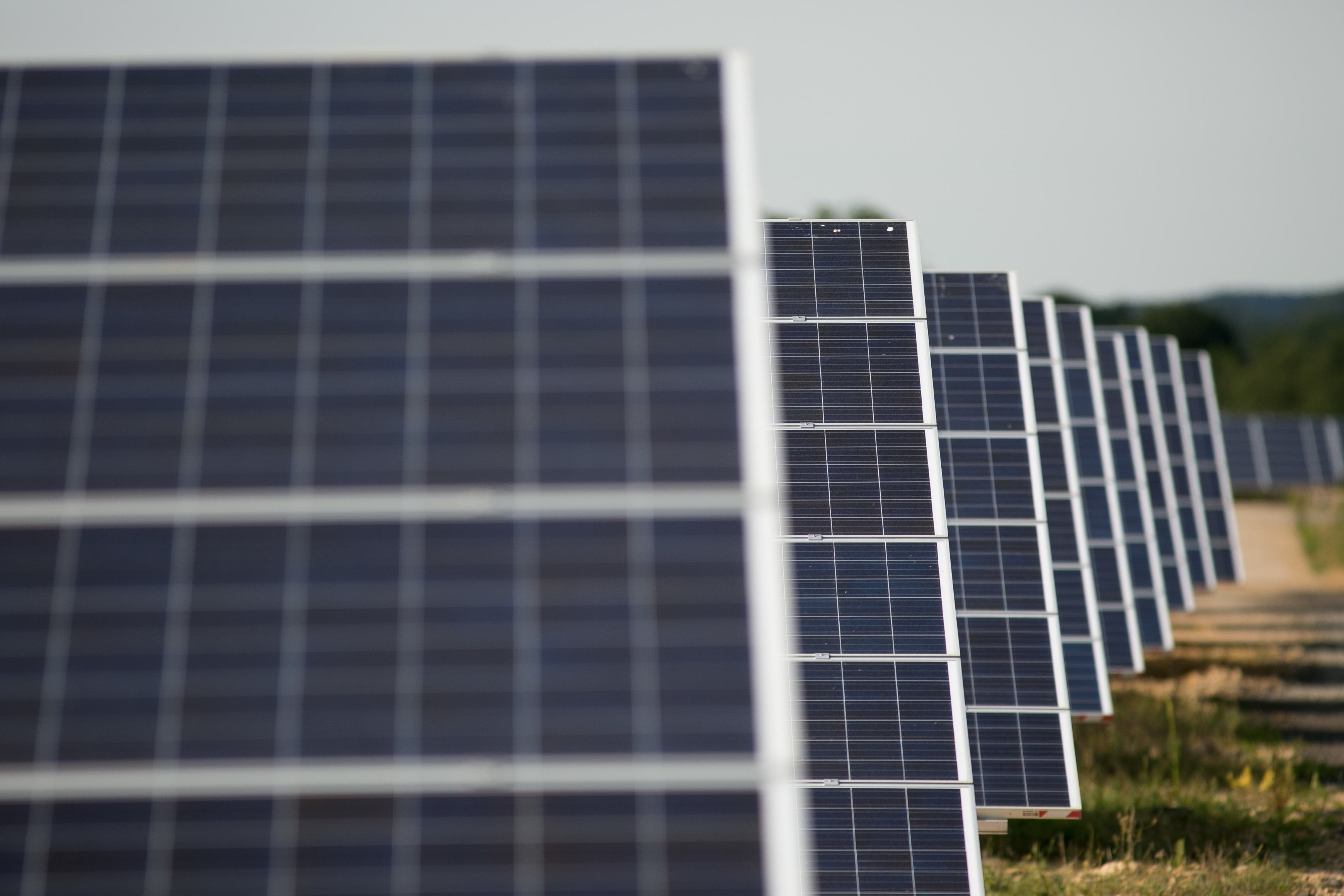Octopus says it will invest £2bn in UK clean power projects by 2030
Energy company said it has kicked off the spending drive by buying four solar farms set to be built over the next two years across England.

Your support helps us to tell the story
From reproductive rights to climate change to Big Tech, The Independent is on the ground when the story is developing. Whether it's investigating the financials of Elon Musk's pro-Trump PAC or producing our latest documentary, 'The A Word', which shines a light on the American women fighting for reproductive rights, we know how important it is to parse out the facts from the messaging.
At such a critical moment in US history, we need reporters on the ground. Your donation allows us to keep sending journalists to speak to both sides of the story.
The Independent is trusted by Americans across the entire political spectrum. And unlike many other quality news outlets, we choose not to lock Americans out of our reporting and analysis with paywalls. We believe quality journalism should be available to everyone, paid for by those who can afford it.
Your support makes all the difference.Octopus Energy has said it aims to invest £2 billion in UK clean energy projects between now and 2030.
The company said it has just kicked off the investment drive by buying four solar farms which are being built in Bristol, Essex, Yorkshire and Wiltshire this year and next.
When they start producing power, in the next two years, the four farms will produce enough power for about 80,000 homes.
Meanwhile, the company said it also recently upped its stake in Exagen, a firm which builds solar farms and energy storage sites.
Octopus, the UK’s largest retail energy supplier, invests in power projects via its energy generation business, which in turn manages a number of investment funds.
The £2 billion figure includes these initial deals, but also represents a pipeline of future investments it hopes to make by the end of the decade.
It comes amid Government plans to invest more than £8 billion in renewable energy via its state-owned energy investment company, GB Energy, in the next five years.
Labour has said it wants to make Britain a “clean energy superpower”, and also recently scrapped a de facto ban on onshore wind farms in the planning system.
Zoisa North-Bond, CEO of Octopus Energy Generation, said the investment “will help boost our energy security and pave the way for a more affordable energy future”.
“Solar and onshore wind are among the cheapest energy sources available. By building closer to demand, we can maximise green electricity when it’s abundant and lower bills for customers nationwide.”
Elsewhere, ScottishPower’s boss recently told PA news agency that the company has a UK spending programme of £12 billion in the years to 2028.
Keith Anderson said he would “love to double that” if Labour policies designed to speed up development of clean energy projects bear fruit.
Centrica, meanwhile, said earlier this year that it is considering pumping cash into the construction of the Sizewell C nuclear power plant in Suffolk, among other investments.